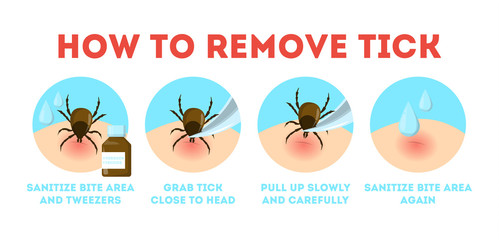
Judging by early reports, this year looks like it’s going to be another killer year for ticks. When I was talking to my vet at our annual spring exam, she checked for heartworm and let me know what she is now seeing. In her words, ticks are already at summer levels. And Lyme Disease is also on the rise in dogs.
So what do you do? Use everything you have in your tool box.
Medications
Monthly heartworm, flea and tick is a must this year. We have been lucky in past years and have not seen many cases of heartworm in dogs that stay in Northern Michigan. But that is changing. Warmer than normal winters are helping the parasite population survive winter. And skin application flea and ticks medications are not working like they used to. So talk to your vet and discuss the best way to protect your dogs.
Vaccines
If you walk in fields or the woods, the Lyme’s Disease vaccine is one you should consider. Once a dog has Lyme’s Disease, it can be a slow recovery. They will experience joint swelling, fatigue, loss of appetite and some can develop kidney complications. It’s is painful and not something you want to watch your dog go through. So preventative actions might be something to discuss with your vet.
After a walk
After I take my dogs for a walk, before we go in the house, I got over them with a lint roller. My dogs have short hair and ticks are easy to pick up this way. This method doesn’t work as well with long haired dogs, but for short haired dogs, it is a great way to find them before they embed.
What do I do if my dog has an embedded tick?
If you find a tick embedded in your dog, don’t panic. Removing the tick properly is important. You need to always grasp the head of the tick with tweezers and pull up. I have a little tool called a tick puller that makes it easy to get under the head. They are cheap and available at pet stores or online. Once you remove the tick, clean the area with alcohol.

Do not do what many old wives tales recommend such as putting a match on the tick or pouring dish soap on them. They may back out, but they will also regurgitate as they do, leaving all the bacteria that causes disease with it.
Warm weather walks are so much more pleasant than winter, but they do come with some downsides. So be aware and keep an eye on your dog. Tick management has become an important part of caring for your dog. And you too. Don’t forget to check yourself! Be safe out there.







